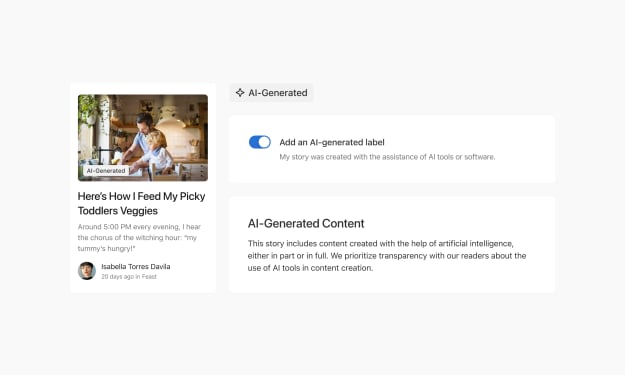The Rise of the Gig Economy: Transforming Work and Lifestyle in the Modern Era
Exploring the Impact of the Gig Economy on Employment Trends and Personal Lives

The gig economy, also known as the freelance economy or on-demand economy, has witnessed significant growth in recent years, revolutionizing the traditional concept of work and employment. Characterized by short-term contracts and freelance work, the gig economy has reshaped how individuals approach their careers and how businesses operate. This article delves into the rise of the gig economy, its impact on the way we work, and the influence it exerts on our personal lives.
Understanding the Gig Economy:
The gig economy refers to a labor market where temporary, flexible, and freelance jobs are prevalent, with individuals taking on short-term projects or "gigs" instead of full-time, long-term employment. This shift in the employment landscape has been driven by technological advancements, such as mobile apps and online platforms, that connect gig workers with businesses and customers in need of their services.
Flexibility and Autonomy:
One of the primary attractions of the gig economy is the flexibility it offers to workers. Gig workers can choose when and where they work, giving them greater control over their schedules and work-life balance. This autonomy appeals to individuals seeking more freedom in their professional lives, allowing them to pursue other interests or maintain a side gig alongside their primary source of income.
Diverse Opportunities:
The gig economy opens up a wide range of opportunities across industries and professions. From ride-sharing and food delivery to graphic design and freelance writing, gig workers can explore diverse roles based on their skills and interests. This accessibility to various gigs allows individuals to diversify their income streams and avoid relying solely on a single employer.
Impact on Traditional Employment:
The rise of the gig economy has also influenced traditional employment practices. Businesses are increasingly turning to gig workers for specialized projects, seasonal demands, and cost-saving measures. As a result, full-time positions with benefits are being replaced by contract-based roles, leading to a shift in the employer-employee relationship.
Financial Pros and Cons:
While the gig economy offers flexibility and diverse income opportunities, it comes with financial uncertainties. Gig workers may face inconsistent income and lack access to traditional benefits like healthcare and retirement plans. As a result, financial planning becomes crucial for gig workers to manage their earnings effectively.
Impact on Work Culture:
The gig economy has introduced a new work culture, challenging the traditional 9-to-5 office model. Remote work and virtual collaboration have become more prevalent, allowing gig workers to operate from anywhere in the world. This shift has also driven businesses to adopt flexible work arrangements, recognizing the value of a remote workforce.
Work-Life Integration:
With the flexibility to choose work hours, gig workers can achieve a better work-life integration, blurring the boundaries between personal and professional life. While this may enhance productivity for some, it can also lead to potential burnout if work-life balance is not effectively managed.
Skills and Continuous Learning:
As gig workers navigate diverse roles and projects, they must continuously upgrade their skills to stay relevant in the competitive job market. Lifelong learning becomes essential for gig workers to remain adaptable and marketable in their chosen fields.
Challenges of the Gig Economy:
Despite its advantages, the gig economy also poses challenges that need to be addressed for sustainable growth and fair labor practices.
Job Insecurity:
Gig workers often lack the stability and job security that traditional employees enjoy. The unpredictability of gig work can lead to financial stress and limited access to benefits like sick leave and paid time off.
Lack of Benefits:
Gig workers typically do not receive employer-provided benefits, such as health insurance, retirement plans, and paid vacation. This leaves gig workers responsible for arranging their own insurance and savings, adding to their financial burden.
Legal Protections:
The gig economy has raised questions about the legal status and rights of gig workers. Many gig workers are classified as independent contractors, which may limit their access to labor protections and benefits that employees typically receive.
Takeaways :
Embracing the Changing Work Landscape:
Gig economy reflects a shift in work approach
Explore diverse opportunities and gain financial autonomy
Adapt to changing market demands and remain agile
Balancing Flexibility and Financial Planning:
Gig work comes with financial uncertainties
Prioritize financial planning for stable income management
Create a budget, emergency funds, and invest in insurance and retirement plans
Promoting Fair Labor Practices:
Address challenges faced by gig workers
Ensure fair labor practices, benefits, and legal protections
Support the well-being of gig workers
Lifelong Learning for Career Growth:
Continuous learning and skills development are vital
Upskill and reskill to stay competitive and relevant
Adapt to changing job requirements in the gig economy
Navigating Work-Life Integration:
Strike a balance between work and personal life
Effective time management and setting boundaries
Prioritize self-care to avoid burnout
Supporting Remote Work Culture:
Accelerated adoption of remote work and virtual collaboration
Increased productivity and job satisfaction
Global collaboration and networking opportunities
Advocating for Worker Rights:
Challenges to traditional employment models
Fair wages, benefits, and legal protections for gig workers
Ensure a gig economy that benefits workers and businesses
Contributing to a Sustainable Future:
Embrace eco-friendly aspects of gig economy
Green transportation, remote work, and conscious consumption
Foster a greener future for generations
Nurturing a Collaborative Gig Community:
Networking and collaborating with fellow gig workers
Share insights and experiences for mutual growth
Build a supportive gig community for advocacy
Embracing the Gig Economy Mindset:
Adopt a flexible and proactive approach to work
Thrive in a changing work environment
Prepare for the future of work with confidence
Conclusion:
The gig economy is undoubtedly transforming the way we work and live, offering new opportunities for autonomy, flexibility, and diverse income streams. However, it also presents challenges in terms of job security, benefits, and legal protections for gig workers. As the gig economy continues to grow and shape the future of work, policymakers, businesses, and individuals must collaborate to ensure fair labor practices and support the well-being of gig workers. By striking a balance between flexibility and stability, the gig economy can truly become a force for positive change in the modern world of work.






Comments
There are no comments for this story
Be the first to respond and start the conversation.